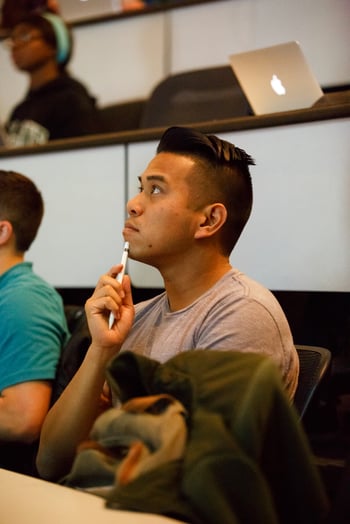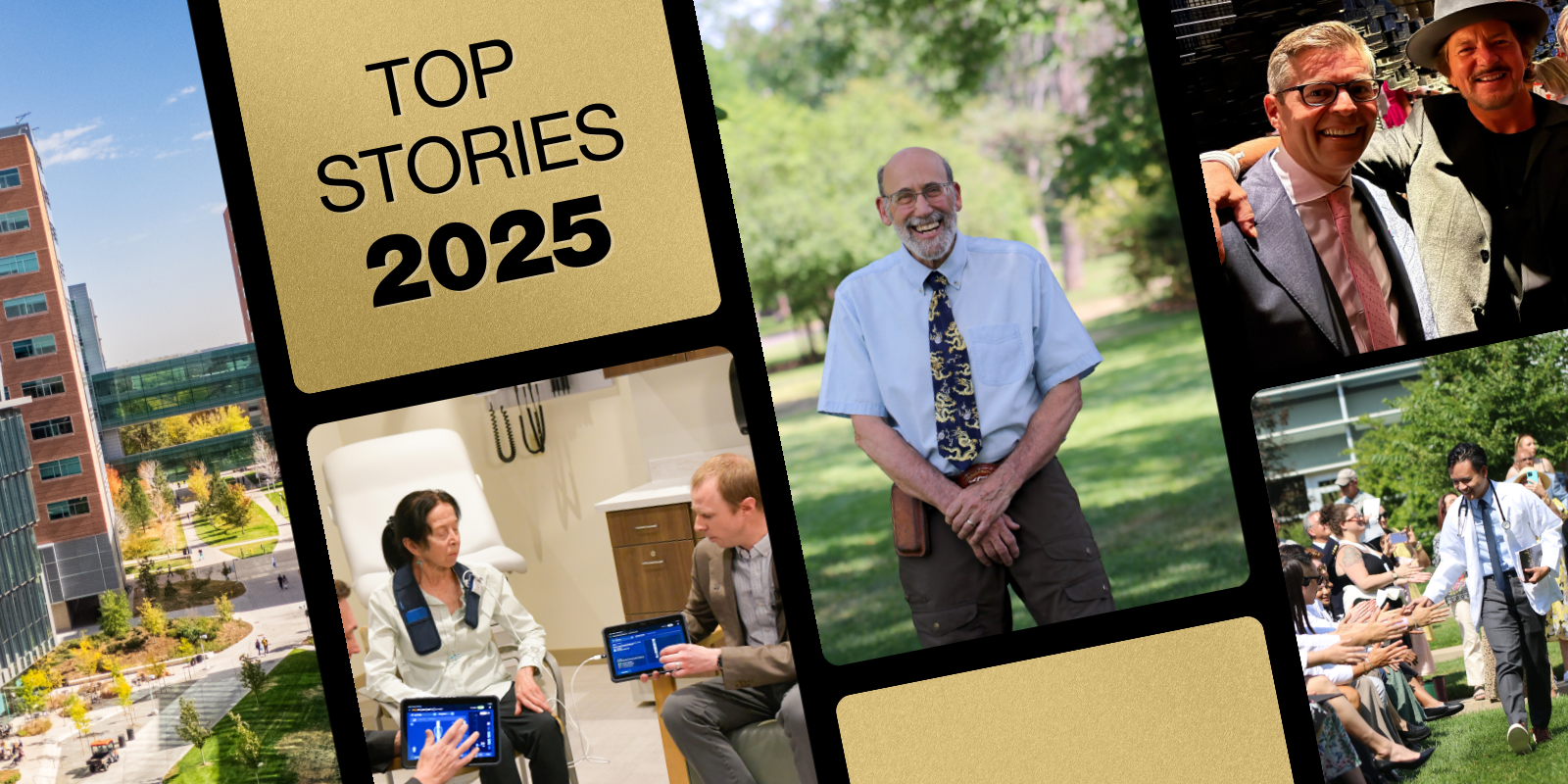As Anthony Scott awaits Match Day on March 19, when he’ll find out where he will spend the next four years as a resident in psychiatry, he doesn’t find his mind wandering far. Scott, who received undergraduate and graduate degrees at Arizona State University before coming to the University of Colorado School of Medicine, hopes to stay on the Anschutz Medical Campus for his residency, working with some of the same physicians and faculty members he trained with as a medical student.
We sat down with Scott to talk about his medical school journey and what he hopes to accomplish in the future.
What made you choose the University of Colorado for medical school?
My brother was a pharmacy student here, so I had visited the campus many times and knew how pretty it was, but what really stood out to me about Anschutz Medical Campus as a special place was when I interviewed here. One of the fourth-years saw me in a suit, which sticks out like a sore thumb in Colorado, and ran down in between electives to say hi. They said, ‘I’m sure the interview went well; you’d be great here,’ and gave me words of encouragement for no apparent reason. That’s always stuck with me. I think people here on campus are so kind and are always willing to help each other out. I’ve tried to emulate that through medical school.
Anthony Scott
What were you looking for as you interviewed for your residency?
I was looking for a program that would push me to become the best psychiatrist possible. That means seeing a really diverse set of cases, having different places to train, having mentors that wanted to help me grow personally and professionally, and really making sure I had connections with all the people that would be my mentors. That was what I looked for on the interview trail.
Why did you choose psychiatry as your area of specialty?
I did a psychiatry rotation in my fourth year, and I loved it. I felt like that was the best match for my skill set, my personality, and what I hope to accomplish in my career. I was a psychology major as an undergrad, and I worked in a research lab where I got to study stress and the brain. I measured neurons in the brain and their effects in rat brains with chronic stress, and I was fascinated that with chronic stress your brain actually shrinks a little bit. To see stress play such a tangible role in the body was fascinating. It made me think I wanted to go to medical school versus getting a PhD in psychology.
What about a psychiatrist’s ability to enhance or even save a patient’s life?
Doctors play such a big role in their community and have such a huge impact on their patients and the quality of life their patients have. Psychiatry, in particular, looks at a patient’s whole life of experiences and figures out what’s happening in the moment and how we can optimize that person’s life. I found that really rewarding, to think about the whole patient and everything that has happened to them in their life that led up to that event. What sticks out to me as interesting from a clinical perspective is to work with patients in their greatest time of need. I see myself gravitating toward acute psychiatry or folks who are hospitalized for one reason or another.
Did you have any faculty mentors who helped you through the med school experience?
I had several wonderful faculty members. One of my biggest advocates is Austin Butterfield, MD, a CU School of Medicine grad and current psychiatrist at Children’s Hospital Colorado. He has a great way of helping students navigate this growth that you experience as you’re becoming a doctor. You’re developing this new identity: ‘I’m not just a premed student or a medical student; I’m really going to be a doctor.’ How do you transition into a more difficult role? Checking in with him though all four years of med school helped me make sure that I was still on the path I wanted to be on. He was a great advisor.
Looking back on your medical school experience, what stands out?
I think the only reason I successfully completed my medical school experience is that I’ve had so much support from my classmates and from faculty. We really are a community, our class, and I’m so privileged to enter the match and feel like my classmates are going to be great physicians wherever they match, and the faculty are rooting for us at every step. CU School of Medicine is a pretty unique place, and I’m really grateful to have done med school here.
Scott matched with the Department of Psychiatry at the University of Colorado School of Medicine.




